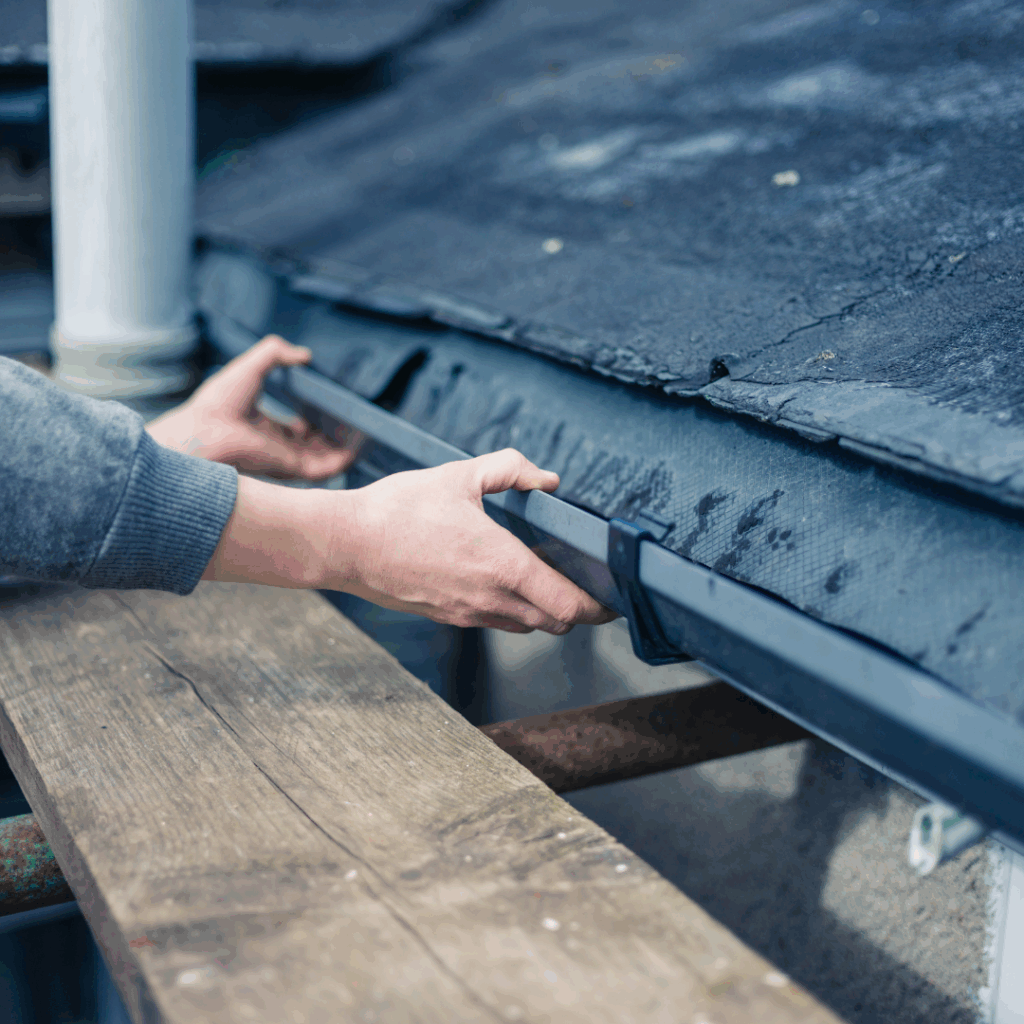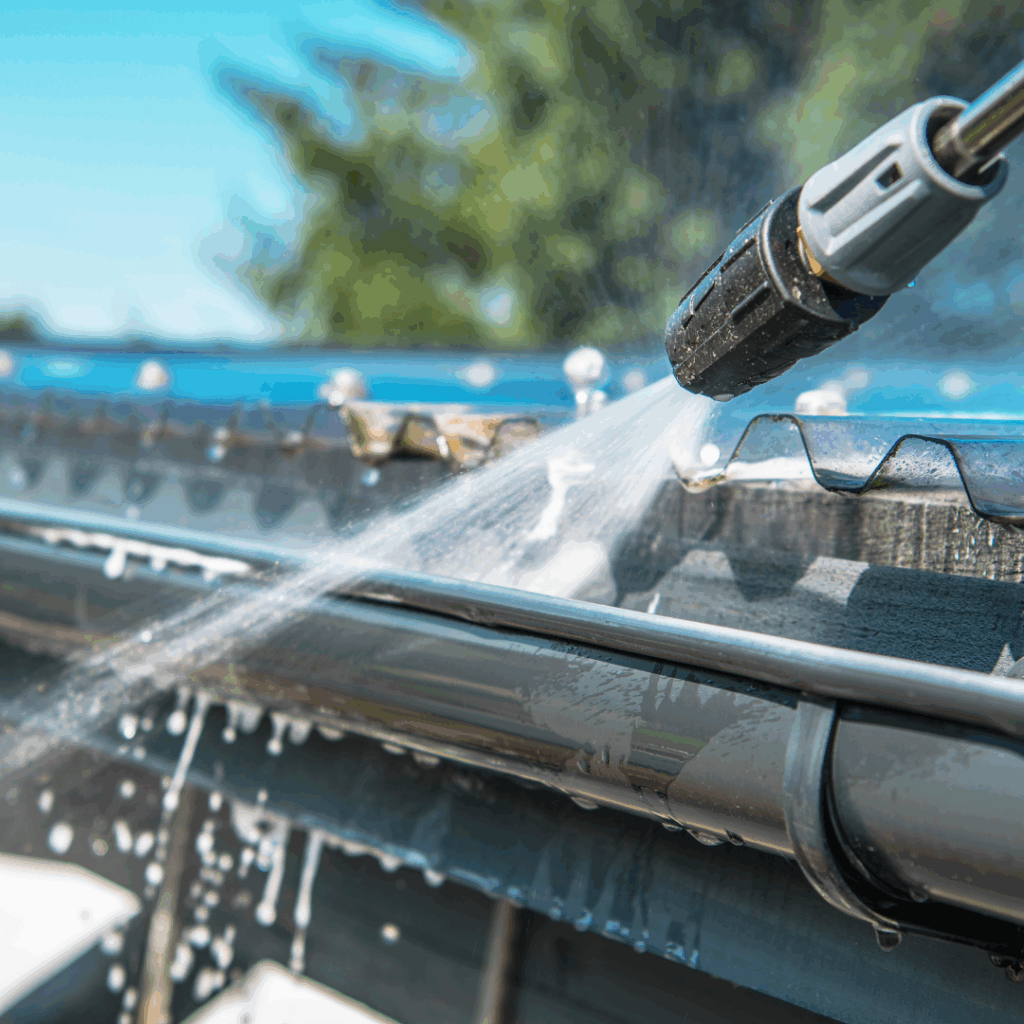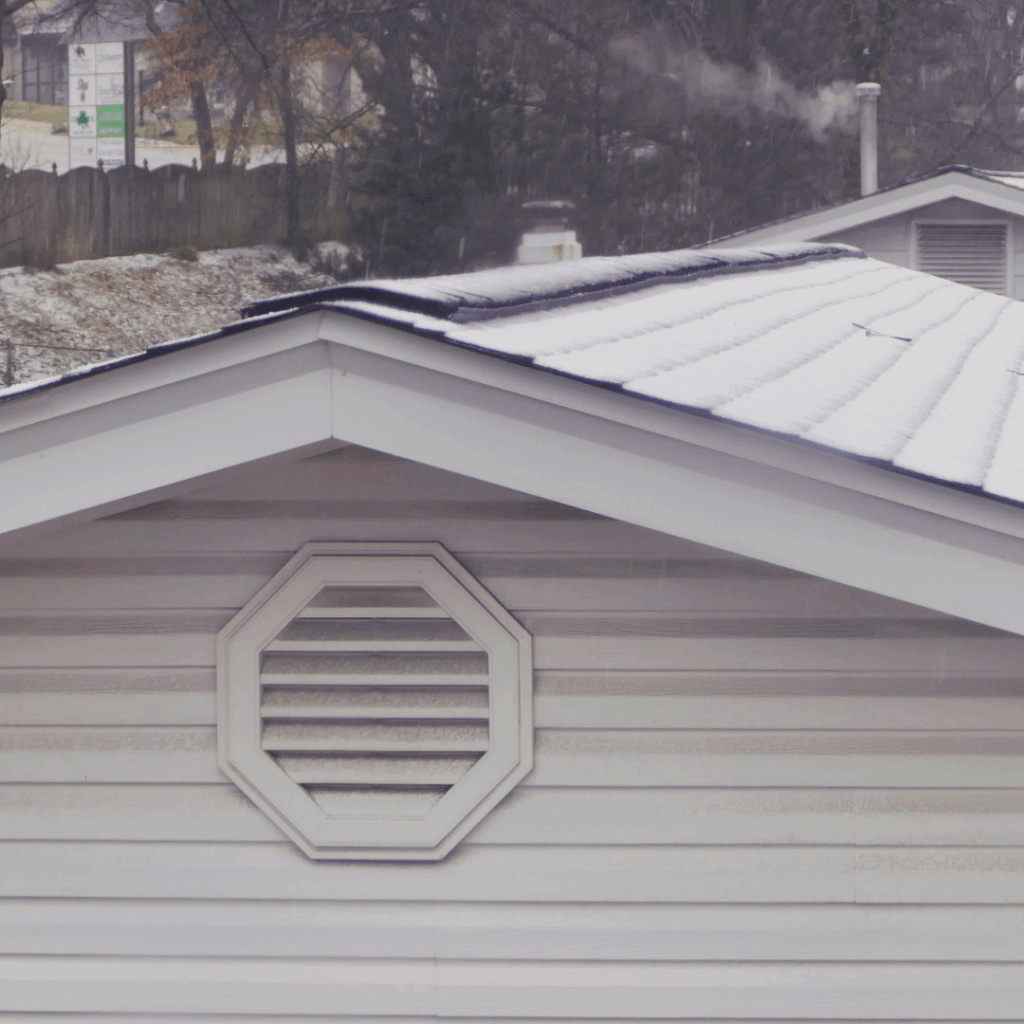When it comes to protecting your home from basement flooding, most homeowners immediately think of sump pumps, waterproofing paint, or foundation sealing. While these are all important, one of the most overlooked and essential lines of defense is your gutter system. Gutters are responsible for directing rainwater away from your roof and foundation—two areas highly vulnerable to water damage. When they’re neglected or improperly installed, gutters can lead to serious issues like basement leaks, mold growth, and costly structural repairs. Understanding how gutters and downspouts work together to manage water flow is key to preventing these problems before they start.

How Gutters Work to Protect Your Foundation
Gutters run along the edges of your roof and collect rainwater that would otherwise cascade directly down the sides of your house. The water is funneled through downspouts that ideally discharge it far from your home’s foundation. This process is vital because when rainwater isn’t redirected, it saturates the soil around your home. Over time, this moisture buildup increases hydrostatic pressure against the foundation walls, which can cause cracks or seepage. Eventually, this excess water finds its way into your basement, especially if your home lacks proper waterproofing or has an older foundation.
The Link Between Poor Drainage and Basement Flooding
A poorly functioning gutter system is one of the most common reasons for water pooling around a foundation. Clogged gutters filled with leaves, debris, or bird nests prevent water from flowing as intended. This causes water to spill over the edges and land right next to your home. In heavy storms, this overflow becomes even more dangerous, contributing to soil erosion and water accumulation around the base of your house. Over time, repeated exposure to excess moisture compromises the integrity of basement walls, leading to dampness, mold, and even full-on flooding if cracks or weaknesses are present.
Why Downspout Placement Matters
Even if your gutters are clean and in good condition, poor downspout placement can make your home vulnerable to flooding. Downspouts should not only be positioned at strategic low points on your roofline but should also extend far enough away—typically 4 to 6 feet or more from the foundation. If downspouts discharge too close to the house, they create concentrated water saturation in one spot, undermining the soil and increasing the chance that water will seep downward into the basement. Adding downspout extensions or splash blocks can dramatically reduce this risk by ensuring water is carried far from the home before it hits the ground.

Gutter Maintenance Tips for Flood Prevention
Preventing basement flooding starts with proactive gutter maintenance. Clean your gutters at least twice a year—in spring and fall—to remove leaves, twigs, and other debris. If you live in an area with a lot of trees or heavy rain, you may need to clean them more often. Check for signs of sagging, rust, holes, or joint separations, and repair them promptly. Ensure that your gutters are sloped correctly so water flows smoothly to the downspouts. Installing gutter guards can reduce the frequency of cleanings and keep your system running efficiently. Regular inspections and upkeep can save you thousands in water damage repairs down the line.
Final Thoughts
Your home’s gutter system is a simple yet powerful tool in the fight against basement flooding. When working properly, it protects your roof, foundation, siding, and basement from water damage. But when neglected, it can become a source of serious and expensive problems. Investing in proper installation, regular cleaning, and effective downspout placement is one of the best things you can do to safeguard your home. Whether you’re dealing with frequent storms or just the occasional heavy rainfall, a reliable gutter system is your first defense in keeping your basement clean, dry, and protected.
The Role of Gutters in Basement Flood Prevention
When it comes to protecting your home from basement flooding, most homeowners immediately think of sump pumps,…
Signs of Roof Damage After a Storm
Severe weather can be stressful for homeowners—and while you may check for flooding or fallen branches first,…
Window Condensation: What It Means and What to Do
Seeing your windows fog up or collect moisture may seem like a minor nuisance, but in some…



